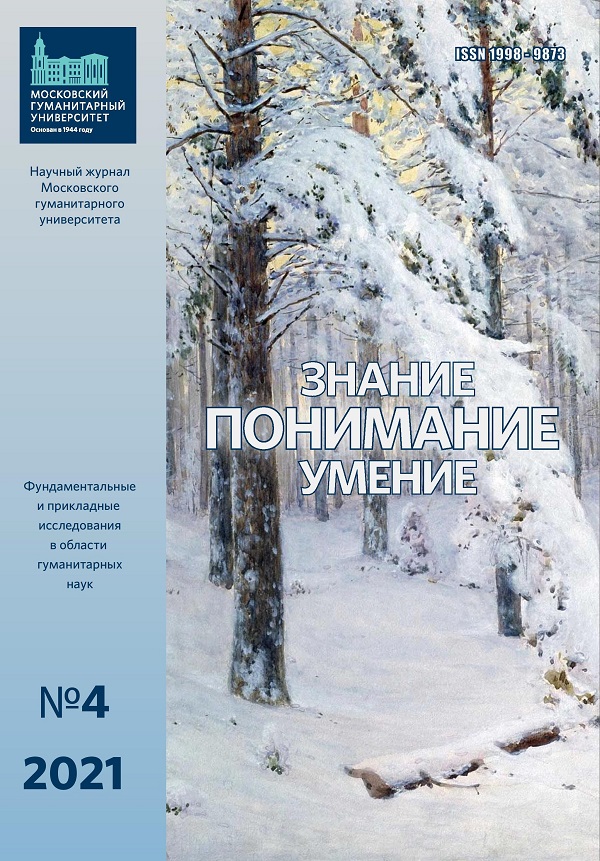Main page / "Knowledge. Understanding. Skill" Journal / Contents / 2014 / No. 3
Stavropolsky Yu. V. Cultural Sociology in Japan and the USA
(Engels Technological Institute (branch),
Yuri Gagarin State Technical University of Saratov)
Abstract ♦ The article takes a look at the emergence and development of cultural sociology in Japan, which reflected the influence of its American counterpart. In Japan, the sociology of culture (bunka shakaigaku) before the World War II was developing in the cognitive frameworks that have emerged in German academia in the late 19th and early 20th century. Under the influence of the German science, the term bunka ("culture") was construed as idealization of the spirit of the nation, while the discipline known as minzokugaku (folklore studies of the customs and arts) was marginalized. Academic life in Japan was finally transformed by the Americanization of the Japanese higher education in the wake of post-1945 occupation.
Reorientation of Japanese sociology towards the empirical social sciences has led to the fact that the concept of culture ought to be understood rather as a set of specific practices at the level of everyday life, or as a totality of the material codes. In this respect the post-war Japanese sociology has been heavily influenced upon by T. Parsons.
Currently, such popular cultural phenomena as youth subculture, the role of the media, gender and sexuality remain the most conspicuous focus of the Japanese sociological studies of culture. The gap between the institutionalized knowledge with its disciplinary rigorousness, and the information reproduced and distributed by the media, stimulates the cultural research, which in the Japanese context requires dismantling the disciplinary boundaries.
Keywords: cultural sociology, Japanese sociology, American sociology, history of sociology, bunka shakaigaku.
Stavropolsky Yuliy Vladimirovich, Candidate of Social Sciences, Associate Professor, Department of Humanities, Engels Technological Institute (branch), Yuri Gagarin State Technical University of Saratov. Postal address: 17 Ploshchad Svobody, Engels, Saratov Oblast, Russian Federation, 413100. E-mail:
StJulius@yandex.ru

Citation: Stavropolsky, Yu. V. (2014) Sotsiologiia kul'tury v Iaponii i SShA [Cultural Sociology in Japan and the USA]. Znanie. Ponimanie. Umenie, no. 3, pp. 187–196. (In Russ.).
Submission date: 6.11.2013.
RUSSIAN VERSION
REFERENCE
Buxton, W. J. (2000) Talcott Parsons and Japan in the 1970s. The American Sociologist, vol. 31, no. 2, pp. 34–42.
Crage, S., Hotchkiss, N., Skiles, S. and Strand, M. (2008) Culture and Its Others: The 2008 Anniversary Symposium. Culture (Newsletter of the Sociology of Culture Section, American Sociological Association), vol. 23, no. 1, pp. 4–5, 8.
Fukutake, T. (1958) Shakai Chosa [Social Study]. Tokyo, Iwanami Shoten Publ. 250 p. (In Jap.).
Hogetsu, M. (2000) A Social World of Sociology in Japan. The American Sociologist, vol. 31, no. 3, pp. 5–14.
Kurauchi, K. (1943) Bunka Shakaigaku: Nihon no Shakai to Bunka [Sociology of Culture: Culture of the Japanese Society]. Tokyo, Baifukan Publ. 456 p. (In Jap.).
Matsuda, T. (2008) Sengo Nihon ni okeru America no Soft Power [American Soft Power in After-War Japan]. Tokyo, Iwanami Shoten Publ. 444 р. (In Jap.).
Seki, E. (1929) Bunka Shakaigaku Gairon [Sociology of Culture Theory]. Tokyo, Tokyodo Publ. 301 p. (In Jap.).
Shunya, Y. (1998) The Condition of Cultural Studies in Japan. Japanese Studies, vol. 18, no. 1, pp. 65–72.
Sociology and Its Publics: The Forms and Fates of Disciplinary Organization (1992) / ed. by T. C. Halliday and M. Janowitz. Chicago, University of Chicago Press. xvii, 429 p.
|
|
|
 The No. 4 2021 of the
The No. 4 2021 of the
Journal "Knowledge.
Understanding. Skill"
is issued
|
|
|
|